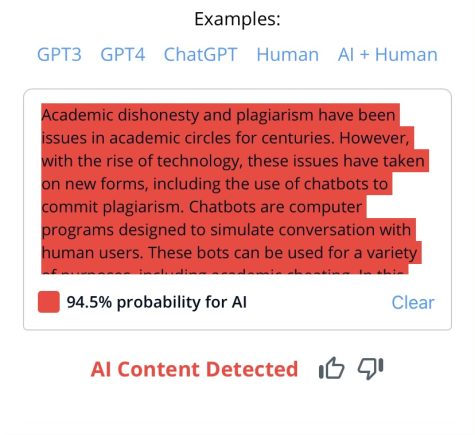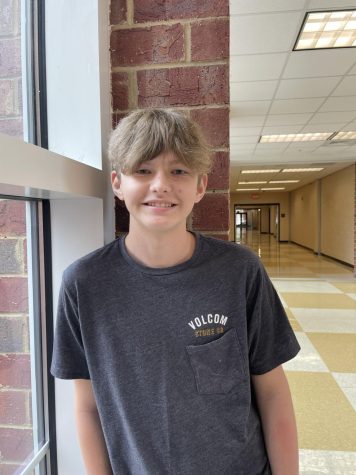The Rise of ChatGPT and Its Effects on Academia
March 31, 2023
ChatGPT has caused concerns acrosss the globe with AI’s possibility to change the world seeming more attainable by the minute.
In schools, English Department Chair Jon Karschnik described it as a “armor vs. weapon” battle between ways to plagiarize and ways to detect plagiarism.
ChatGPT is an Artificial Intelligence chatbot made by Open AI. It allows people to ask it prompts that it will answer to its best ability.
It uses websites across the internet to analyze questions and to collect facts and quotes with which to answer them.
As an academic resource, the bot can revise all types of writing and code; however, as a tool for plagiarism, it can fake job interviews or write essays.
The latter has begun to spark concerns among educators. This mostly affects English and social studies classes, as writing is a large part of them.
Social Studies Department Chair James Campbell said this is a “hot topic between teachers in [his] department,” adding, however, that students not writing their own essays has always been a problem.
Principal Ashely Agans said utilizing the tool will be counted as academic dishonesty and incidents involving major assessments will be referred to the school’s administration.
However, Fulton County Schools Director of Student Discipline Kevin Scott said the county does not yet have a policy on the use of AI for schoolwork.
“We have not developed any guidance or taken a clear stance regarding the use of ChatGPT yet,” said Scott. “We are currently seeking feedback from teachers, principals and parents regarding our Student Code of Conduct for next school year, but until that process is completed in May, we will not have any information to share on this topic.”
The use of ChatGPT is largely undetectable through Turnitin.com because the AI combines words into unique sentences, whereas Turnitin.com can only match submissions to already existing text.
However, several websites describing themselves as “content detectors” can alert teachers when an AI has been used. These sites indicate what percentage of a text is likely human generated.

To avoid the uncertainty, some teachers ask students questions about their papers; Karschnik, for example, said he sometimes quizzes students on the vocabulary in their essays.
Campbell said 99% of the plagiarism he has caught begins with the thought, “This kid did not write this.”
Teachers sometimes get suspicious when their students’ writing doesn’t sound like them, and ChatGPT does not always sound human.
ChatGPT also has access to the whole of the internet, including unreliable sources. So, it often gets information wrong, and it can misunderstand the information it finds.
For example, Karschnik said he asked ChatGPT about three quotes from Hamlet. It explained two of the quotes well, but it did not understand the other one and gave an incorrect interpretation.
Karschnik and Campbell said students shouldn’t use this tool because they must learn how to interpret texts and write for themselves.
“We want to train students to consider, analyze it, synthesize it, form conclusions and articulate,” said Campbell.
Karschnik added, however, that he is open to the idea that AI will be a big part of everyone’s future and that we need to “accept that maybe the grunt work is done by the machine. I mean, that’s why we make machines.”

audacious new yorker • Apr 13, 2023 at 5:00 pm
heyyyy i read this before it was out!!! ;o i feel cool…. great job grey, it turned out great!